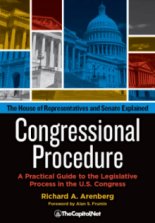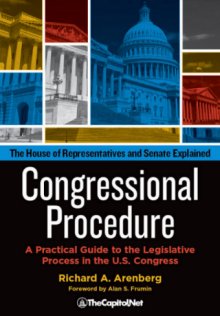Regular Order (CongressionalGlossary.com)
From the Congressional Glossary – Including Legislative and Budget Terms ‘Regular Order’: Lawmaking The Old-Fashioned Way | Ron’s Office Hours | NPR Many contemporary lawmakers urge a return to “regular order” lawmaking. In general, the regular order refers to a traditional, committee-centered process of lawmaking, very much in evidence during most of the … Read more



